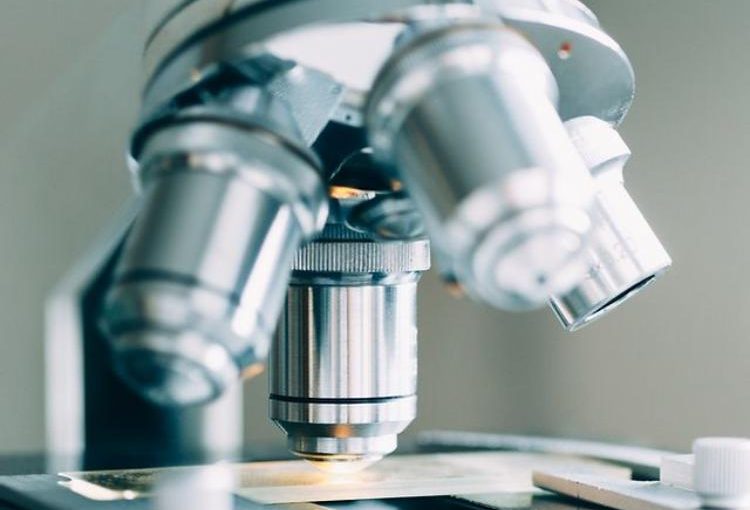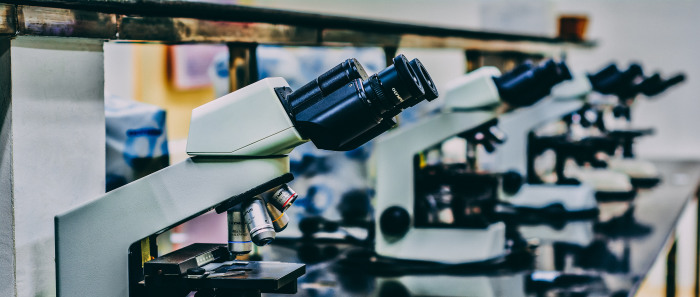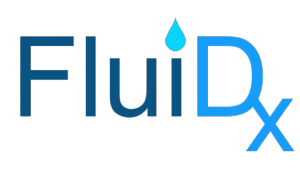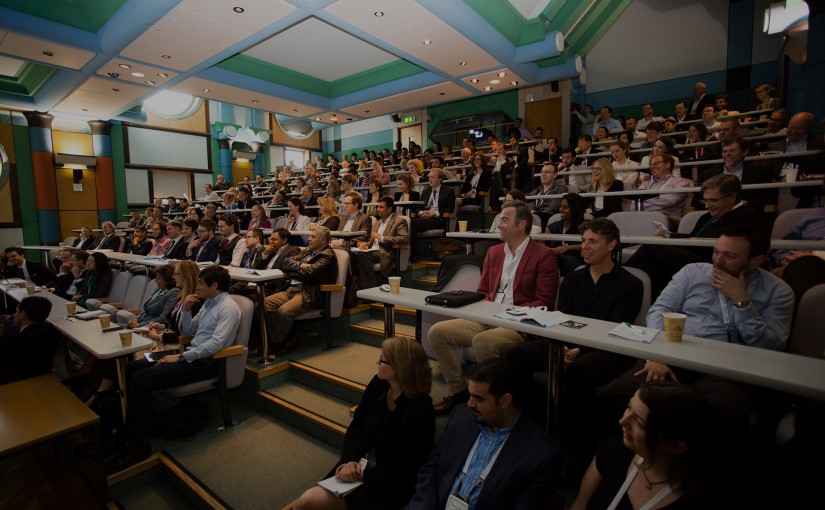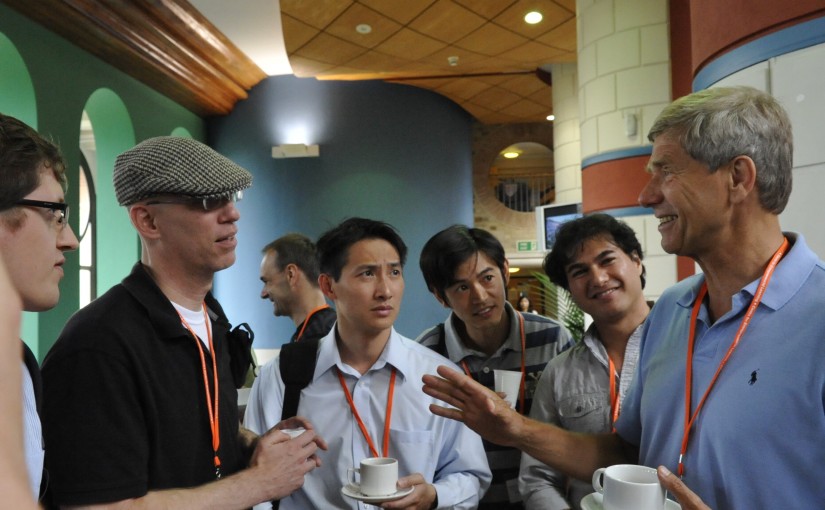After months of project development, the 8 Cambridge IMAGINE IF! local finalists pitched their science-based venture propositions to a panel of six judges for their chance to qualify for the global finale and to compete for a $4,000 cash prize sponsored by Venn Life Sciences.
To conclude the night FluidX claimed the position of local winner, with Neutrocheck claiming runner up. Ahead of the global final and Health Horizons – Future Healthcare Forum which will take place on June 26-27, 2019 in Cambridge, UK, we had the opportunity to learn a little bit more about each of our Cambridge representatives.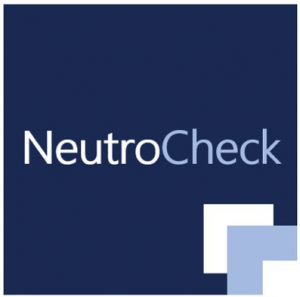
Neutrocheck: Transforming care for patients on cancer chemotherapy
Each year, around 2.2 million patients undergo chemotherapy treatment across Europe. Neutropenic sepsis (NS) is a life-threatening medical emergency that occurs in patients having chemotherapy. NS occurs because chemotherapy suppresses the immune system and, if patients develop an infection during this time, even a mild illness can be fatal. The key blood cell suppressed in NS is known as the neutrophil. Consequently, if a patient on chemotherapy has even mild signs of an infection, they must be brought into hospital immediately and have a blood test to check their neutrophil levels. While awaiting results for 1-2 hours, the patient is given precautionary antibiotics in case they have low neutrophils. Data from patient records at Addenbrooke’s Hospital, Cambridge, shows that almost 60% of these patients turn out to have normal neutrophil levels and therefore did not need to attend hospital. The hard cost to a healthcare provider of each such visit is approximately £700. In 2018, in the UK alone, around £50 million was wasted on these unnecessary visits.
Neutrocheck was launched to develop a transformative new medical device – Neutrocheck – presenting tangible efficiencies in patient care and healthcare resource, both financial and human. Using blood from a small pin-prick, the Neutrocheck device will provide a near-instant measure of a patient’s neutrophil count at home. Neutrocheck is designed to be portable and easy-to-use. Our focus is to produce a fast, reliable and low-cost device which would improve safety and quality of life for cancer patients worldwide, whilst saving healthcare institutions such as the NHS millions of pounds each year from substantially reducing hospital visits.
Neutrocheck is made up of Saif Ahmad, Dr. Fahad Ali, Umaima Malik Ahmad and Dr. Nicole Weckman.
Saif leads Neutrocheck’s day-to-day operations and supports product development. He is a Clinical Lecturer in Clinical Oncology, University of Cambridge. His post-doctoral position enables him to work as both a clinical oncologist at Addenbrooke’s Hospital and a post-doctoral researcher at the
Cancer Research UK Cambridge Institute. With a strong network within the oncology field, the Neutrocheck team intend for Saif to support product development, particularly clinical trials, and ensure the device remains fit-for-purpose and, after launch, to focus on business development with
healthcare providers around the world. In July 2018, Saif and fellow team member Nicole Weckman were recognised for their potential and selected as a Canada-UK Postdoctoral Fellow in Innovation and Entrepreneurship which promotes and expands the careers of talented Postdoctoral researchers
to enable them to become future leaders and entrepreneurs embedded in internationally leading centres of excellence in the UK and Canada (https://www.opda.cam.ac.uk/career-development/CanadaUK-fellowships).
Fahad is responsible for scientific and technical issues linked with product development and will support marketing. He is a visiting post-doctoral cancer researcher based at the MRC Cancer Unit at the University of Cambridge. He has recently published a number of first-author research articles. Fahad completed his PhD in molecular biology at the University of Liverpool. Over the last 5 years he has also founded and been working in a start-up company that is a specialist healthcare distributor of high quality, innovative medical products including medical devices.
Umaima leads on finance, business strategy, marketing and sales. She has a broad skill-set covering project and risk management, finance and law. She is a qualified lawyer with nine years of industry experience within financial services and life sciences. She has worked and studied across Europe and the Middle East for companies including Citibank and National Bank of Abu Dhabi. Umaima
completed her undergraduate degree in Law with European Legal Studies from King’s College London. She completed the MPhil in Bioscience Enterprise from the University of Cambridge in 2017 and after working as in-house counsel for Abcam, is now an Associate Director for Business Development Operations at AstraZeneca where she focuses on transaction negotiation and execution for both in-licensing and divestment deals, with a particular focus in the oncology space.
Nicole leads on product development with a specific focus on engineering. She has specific expertise in the development of point-of-care biosensors and currently works as a postdoctoral researcher in the Department of Physics, University of Cambridge. She is also a University of Cambridge Canada-
UK Postdoctoral Fellow for Innovation and Entrepreneurship.
We spoke with Neutrocheck’s Saif to get to learn a little bit more about our runner up.
How did team Neutrocheck meet, and why do you as a team get on so well?
Our team are all linked by the University of Cambridge. For instance, Fahad and myself worked in neighbouring labs. Nicole joined last year, and I met her through a University of Cambridge postdoctoral leadership development programme. Her expertise and passion for biosensors meant she perfectly fit in with the business. We all get on fantastically well and whilst passionate about
driving the project forward we have all very much enjoyed the experience too. In particular, we have learnt so much in the last year or so and are hugely grateful to a number of fantastic mentors who have supported us.
Why did you want to go in science?
I think I speak for all of us in saying that one of the best things about science is that we are constantly learning new things. In all of our disciplines, there are so many unanswered questions and often the answers are far from what we were expecting. Being able to apply our scientific knowledge to develop a device that may improve the lives of cancer patients is a fantastic and exciting
opportunity.
What entrepreneurial experiences have helped shaped you so far?
Umaima completed an MPhil in Bioscience Enterprise at the University of Cambridge which has provided her with a diverse knowledge base and skillset to help drive the project forward. But, for all of us this is our first experience of a start-up.
Let’s talk about your project. Where did you get your idea from and what problem does it address? Overall, what impact are Neutrocheck trying to make?
As chemotherapy suppresses the immune system, even a mild illness can be fatal for chemotherapy patients. The suppression of a white blood cell known as the neutrophil, can lead to neutropenic sepsis, a life-threatening medical emergency. Therefore, chemotherapy patients with even mild signs of infection at home are brought into hospital for blood tests to check their neutrophil counts and, while awaiting results, given intravenous antibiotics as a precaution. 6 in 10 patients turn out to have normal neutrophil counts, and therefore did not necessarily need to attend hospital, costing the NHS ~£40 million each year. Neutrocheck are striving to improve the lives for cancer patients worldwide and to deliver safer care and an improved quality of life.
What is your solution and how does it work?
Neutrocheck was launched to develop a transformative new medical device – Neutrocheck – presenting tangible efficiencies in patient care and healthcare resource, both financial and human. The device will be used in the patient’s home to give a near instant measure of the patient’s neutrophil count using blood from a small pin-prick. The Neutrocheck device is designed to be portable and easy-to-use in a home environment, similar to a home pregnancy test. Our focus is to produce a fast, reliable and low-cost device which would improve safety and quality of life for cancer patients worldwide, whilst saving healthcare institutions such as the NHS millions of pounds each year from substantially reducing hospital visits.
Where did you get your idea from?
Working on call in the hospital I am used to seeing patients attend A&E almost every day only to then have to go home because their neutrophil blood count was normal. It seemed like such a simple problem to solve with a home testing device but when I looked into the science behind it, it became clear why such a device didn’t yet exist. However, that was the fun part of the challenge and now we’ve built a team that is striving to solve this problem and potentially benefit many thousands of cancer patients worldwide in future.
Why is it better than competitors?
No other device exists that specifically tackles this problem, however competing devices can provide neutrophil levels for patients at home. These devices are bulky and prohibitively expensive – nearer a thousand pounds as opposed to our device which would cost around £2 to manufacture.
Who are your targeted customers?
Healthcare providers worldwide, both private and government. The NHS would be a potential customer and in fact the North American market would be a prime market opportunity for us.
